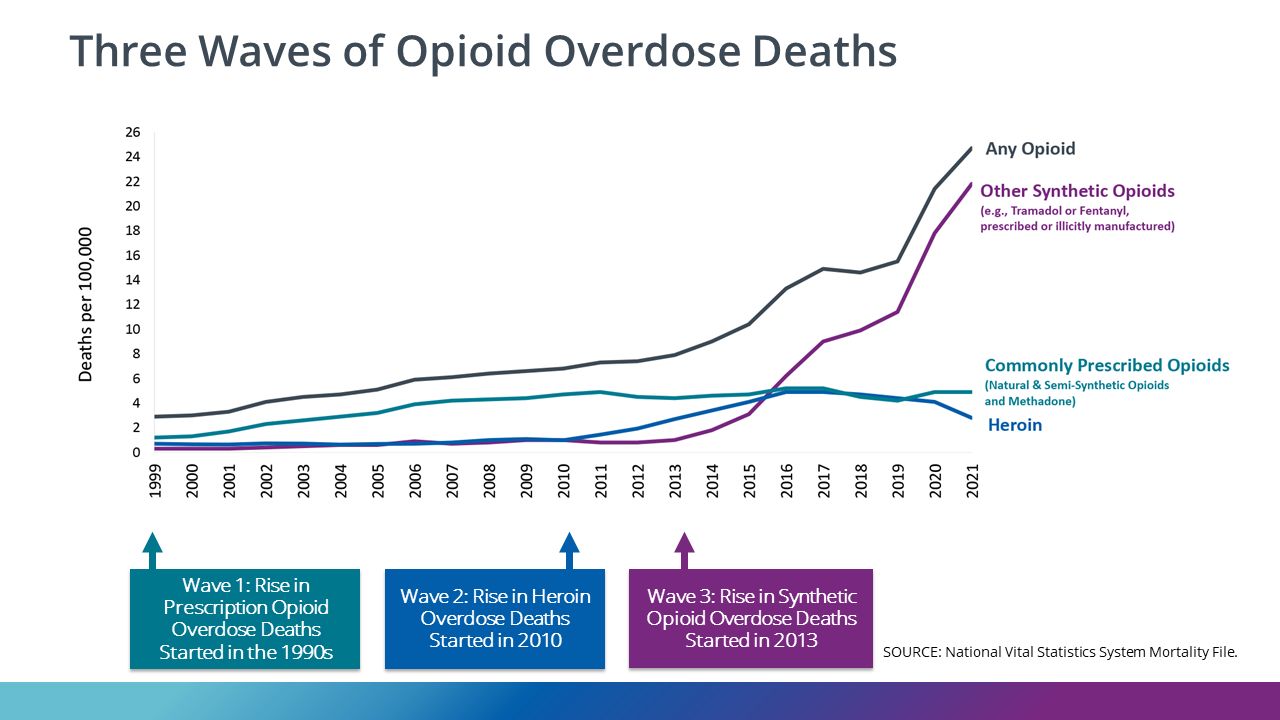This is an online Viewpoint article from the Christian Research Journal.
Viewpoint articles address relevant contemporary issues in discernment and apologetics from a particular perspective that is usually not shared by all Christians, with the intended result that Christians’ thinking on that issue will be stimulated and enhanced (whether or not people end up agreeing with the author’s opinion).
When you support the Journal, you join the team and help provide the resources at equip.org that minister to people worldwide. These resources include our ever-growing database of over 2,000 articles, as well as our free Postmodern Realities podcast.
Another way you can support our online articles is by leaving us a tip. A tip is just a small amount, like $3, $5, or $10, which is the cost of a latte, lunch out, or coffee drink. To leave a tip, click here
Click here for the audio article.
Apart from those who profit from it, no one likes war. It kills our young men and women. It destroys civilized societies. But the Christian worldview will allow us to neither glorify nor eschew it. C. S. Lewis’ infamous Screwtape used the topic of war as a foil for the psychological and spiritual warfare in which he was training Wormwood to engage his human “patient.”
Let him begin by treating the Patriotism or the Pacifism as a part of his religion. Then let him, under the influence of partisan spirit, come to regard it as the most important part. Then quietly and gradually nurse him on to the stage at which the religion becomes merely part of the “cause,” in which Christianity is valued chiefly because of the excellent arguments it can produce in favour of the British war-effort or of pacifism….Once you have made the World an end, and faith a means, you have almost won your man, and it makes very little difference what kind of worldly end he is pursuing.1
The sad fact is that neither war hawks nor pacificists should be comfortable within the Christian worldview. War is always hell for the very few who ever have to engage in it. But sometimes it can be immoral not to go to war.
Romans 13 specifies that God created the institution of government. And He did so not only as a means of organizing His people but as a way of subduing evil. Paul is very specific about the fact that “the one in authority is God’s servant for your good. But if you do wrong, be afraid, for rulers do not bear the sword for no reason. They are God’s servants, agents of wrath to bring punishment on the wrongdoer” (Romans 13:4 NIV). While individual Christians are called to “turn the other cheek” when they are insulted or treated wrongly, this passage of Scripture makes it clear that governments have a similar but different obligation. The immoral actions of nation-states that engage in conduct like unwarranted violence, unprovoked military attacks, or genocide must be met with righteous resistance. A pacifist view would allow evils like these to go unchecked. And that would be immoral for the opposite reason. So, God instituted government as His proxy to “wield the sword” in cases where stopping immoral behavior is required.
Christian thinkers realized that God’s people should never rationalize going to war too easily. But considering how and when to engage in war requires a nuanced response that includes that possibility. This is the source of the rationale behind what has come to be known as Just War Theory (JWT).
THE TENETS OF JUST WAR
Just War Theory carries three primary distinctions within it. The first, jus ad bellum (“right to war”), involves the decision to go to war in the first place. The second, jus in bello (“justice in war”), covers the conduct of those who are engaged in waging war. Finally, jus post bello (“justice after war”) refers to the ethical considerations in the aftermath of war.
The justifiable reasons for waging war — jus ad bellum — must be based on a cause that is morally defensible. Self-defense against aggression or securing the human rights of innocents whose lives are imminently threatened are good examples of righteous causes. But the decision to go to war can be made by only a legitimate authority or governing body that does so with the right intention of establishing peace. The motivation cannot be the pursuit of selfish gain or revenge. Force should be used only as a last resort and that force must be proportional to the severity of the threat. In short, war should not be entered into casually and must also include a reasonable expectation of success.
As for the behavior of those engaged in war — jus in bello — the focus is on the pursuit of human rights and ethical standards of conduct. It includes minimizing suffering to the greatest extent possible and demands that civilians and non-combatants should be immune from deliberate targeting.
Finally, in the aftermath of war — jus post bello — focus must be on the pursuit of a just and lasting peace. It includes identifying root causes for the conflict, reconciliation in its wake. In the end, JWT acknowledges that war may be the only viable remedy for the evil intentions and actions of belligerents. But it also demands that the goal should always be a peaceful and lasting resolution.
JWT has been an inviting target for criticism. It has reputation as an after-the-fact attempt to rationalize decisions to go to war that were made for self-interested reasons, not ethical ones. It is doubtful that the terrorist leaders in a training camp in the mountains of Afghanistan, or the military leadership of Communist China, give much consideration to JWT before they make decisions to attack the West. But we must insist that the power brokers in the White House Situation Room do.
What has made the application of JWT so difficult throughout history is not changes to the moral tenets of JWT. Those tenets have remained largely the same since St. Augustine first broached the subject in the 4th century. What has changed is the nature of warfare itself.
THE EVOLUTION OF WAR
When the thinkers who formulated JWT were working through the moral implications and limitations of warfare, their vision of combat was much different from the one we have today. War involved lines of troops advancing on fortified positions. The weapons of war were clubs, arrows, shields, and spears used in hand-to-hand combat. It was visceral, personal, and brutal. This was First Generation Warfare (1GW). And war in that form remained very much the same until after the Industrial Revolution.
By the 18th century, modern warfare had evolved to introduce rifles, artillery, and machine guns to the battlefield. What we now know as Second Generation Warfare (2GW) became more technological. Machinery escalated the damage that could be inflicted but also allowed those effects to be delivered from a distance. Combatants no longer needed to see the whites of their enemy’s eyes. Third Generation Warfare (3GW) added speed to the mix. World War II introduced fast-moving tanks and the tactics of maneuver warfare. The battlefield expanded and became more dynamic. Tactical advances that had taken weeks or months on foot could now be accomplished in minutes or hours. But these technological advances eventually gave way to the most intimidating and substantial threat in military history — nuclear weapons changed the world forever.
Partly in reaction to the threat of mutually assured destruction, a new strategy evolved that slowed warfare down and made it harder to categorize. In Vietnam and during the Global War on Terror, guerrilla tactics became more widespread. Insurgency allowed weaker combatants to engage more powerful opponents in ways that had previously been used only on the fringe. Fourth Generation Warfare (4GW) took away the nation-state’s monopoly on waging war and made warfare into a kind of ideological currency. The enemy was no longer easy to identify or attack. He was a phantom that struck violently and then disappeared into the mist.
More recently, Fifth Generation Warfare (5GW) — what some have called “a war of information and perception” — has emerged as the latest existential threat to America. Fifth Generation Warfare is not a new form of fighting that emerged sequentially from its predecessors. Instead, it is a collection of tactics nestled within third and fourth generation models. It is driven by technology and creates an environment in which “violence is so dispersed that the losing side may never realize that it has been conquered.”2 In 5GW, “we are no longer fighting a defined adversary in a defined battlespace for a defined period of time. Instead, the 5th Generation mission space is a continuous global battle of narratives that will play out over both virtual and physical space and encompass a range of violent and non-violent actions and effects.”3
THE NEW FRONTIER
It is breathtaking to consider how drastically the nature of warfare has changed in just the past ten years. Today, our leaders face not only the looming threat of the use of 3GW nuclear weapons in the ongoing conflict between Russia and Ukraine, but the simultaneous existential effects of 5GW in our own country.
In the 1GW/2GW world where JWT originated, identifying combatants was an easy task. Not so in latter generations of warfare. In 2013, I addressed some of the ramifications of 4GW as it began to morph into 5GW. In my Christian Research Journal article, “Justice and Asymmetric Warfare,” the discussion revolved around the ethics of the use of remotely piloted vehicles and drone strikes that were becoming ubiquitous, mostly in the Middle East. In that piece, I made the point that
if we are to maintain a morally defensible position in these types of debates, we cannot look the other way when remote warfare threatens to diminish our abhorrence for war; when the ability to target individuals tempts us toward an unchecked and unhealthy enthusiasm for revenge; or when the asymmetric actions of our enemies goad us into continuing to spill the blood of our youth pursuing a victory we cannot define, while conducting a campaign we have no hope of winning.4
In that kind of environment, the unenviable task of applying JWT was complicated because the enemy was difficult to define. Fourth Generation Warfare pitted nation-states against rogue elements driven only by ideology. Terrorist organizations exist to inflict maximum harm on innocent people. They have no intention of seeking a peaceful resolution to the injustices they perceive to have been inflicted on their ideological brethren. How does a nation-state respond with a sense of proportionality to a band of vigilantes based on another continent that is bent on sewing chaos in our society?
In other words, the nature of the conflict between entities in a 4GW conflict violates nearly every tenet of JWT. Fifth Generation Warfare makes the difficulty of applying JWT even worse.
DRUG WARS
Today, the methods of 5GW allow belligerents to undermine us in ways that are more difficult to quantify or, in some cases, even recognize. There is no “bad guy” to highlight on the evening news. No demolished target we can identify in an image.
In some cases, the effects are purely technological. But, more importantly — and more deliberately — they are psychological and sociological. We go about our days in mostly comfortable normality with only a vague sense that something is amiss. But the cultural fallout that surrounds us can be more devastating than that delivered by any kinetic weapon.
As an example, beginning in 2013, opioid fatalities in America began to rise logarithmically. By 2022, opioids — primarily due to synthetically produced fentanyl — were the cause of death for over 107,000 Americans.5

These deadly drugs are being injected into our country by the Sinaloa and Jalisco New Generation Mexican drug cartels, and by the main manufacturer of the ingredients for fentanyl — China. The economic impact of this scourge was “nearly $1.5 trillion in 2020” alone.6 And that says nothing of the ethical and cultural repercussions, or the gang violence that accompanies it.
The opioid epidemic constitutes a concerted effort by our enemies to undermine the fabric of our society. Some of us hear about it in the news. We see the decaying cities that take the brunt of the damage. We have a sense that something is going horribly wrong. We would be rightfully terrified if Chinese or Mexican extremists killed 107,000 Americans and caused $1.5 trillion damage to our cities in one year in a “traditional” act of terror. But how many of us consider these to be tactical and strategic elements to be an act of war? Welcome to Fifth Generation Warfare.
CYBER COMBAT
An argument can be made that the psychological effects of anxiety, depression, and loneliness that plague our youth because of social media are also partially attributable to a form of 5GW. While the Chinese Communist Party (CCP) bans any American social media platform from use in its country, it also controls the ways in which such applications as TikTok are deployed in ours. TikTok and applications like it are not only used to access user data, they are also notorious for the vacuous quality of their content. As Tristan Harris, a technology ethicist and the executive director and co-founder of the Center for Humane Technology, puts it:
[China’s version of TikTok] is very different from the one available in the West. In their version of TikTok, if you’re under 14-years-old they show you science experiments you can do at home, museum exhibits, patriotism videos and educational videos. And they also limit [screen time] to only 40 minutes per day. Now, they don’t ship that version of TikTok to the rest of the world. So, it’s almost like they recognize that technology is influencing kids’ development, and they make their domestic version a spinach version of TikTok, while they ship the opium version to the rest of the world.7
Psychological operations of this form are no doubt part of a concerted effort by the CCP to degrade the social fabric of America. But it most certainly doesn’t stop there. In July 2023, defense officials found Chinese malware embedded in U.S. military equipment. This is not unprecedented. But unlike previous instances, this malware is not designed to surveil but rather to disrupt the functionality of our military hardware.
US officials told the [New York] Times that investigations into Chinese malware had been underway for several months and that the malicious code had infiltrated US military systems across the country and abroad….“China is steadfast and determined to penetrate our governments, our companies, our critical infrastructure,” [said] the deputy director of the National Security Agency, George Barnes….Experts say this new wave of malicious code has the ability to disrupt US military and civilian operations. [In June, 2023], Rob Joyce, the director of cybersecurity at the NSA, called the nature of this malware “really disturbing.” The Times reported that it could allow China to cut off power, water, and communications to military bases, and it could also affect personal homes and businesses across the country.8
Finally, the CCP conducts cyber warfare in more conventional ways through good old-fashioned espionage. James Olson, former Chief of Counterintelligence at the CIA and co-founder of the pro-life organization, 40 Days for Life, says his heart breaks for what he sees going on in the country he has defended so well and for so long. Olson is not an isolationist. He believes that America has a moral obligation to protect its allies, but also that our greatest existential threat comes from China. Says Olson:
China is in a class by itself. What the Chinese intelligence services are doing in the United States today is outrageous. They are overpowering our defenses. They are flooding intelligence resources into the United States. They are stealing our technology. They are hacking into our databases. They are subverting our citizens. They are everywhere. And their appetites are voracious. They are going to steal anything that is better here than what they have. That means research…any kind of technology, industrial processes…agriculture, medicine — everything.9
Espionage has always been an ethically sensitive subject. It is not necessarily morally incompatible with a biblical worldview. After all, Joshua sent spies into Jericho. And the prostitute Rahab, who concealed them, made the Hebrews 11 faithful “hall of fame.” But if we set that aside as a practice in which everyone engages, we are left with the more sinister aspects of 5GW. How do we apply JWT in a world like this?
PRESENT CONCERNS
Analyzing the current world situation illuminates the difficulties that come with applying JWT, especially to 5GW. The Russian invasion of Ukraine is a case-study in more conventional JWT thinking within a 3GW scenario. In that case, the lines are clearly drawn in a conflict between nation-states.
In 1990, at the end of the Cold War, the Soviet Union and U.S. agreed to a unified Germany, the removal of nuclear weapons from Ukraine, and a promise that NATO would move “not one inch” to the east. Diplomatic problems began percolating nearly twenty years ago. But more recently, talk of expanding NATO to include Ukraine has intensified to the point that Vladimir Putin believed he had every right to invade Ukraine because we were preparing to break that agreement. In Putin’s mind, his preemptive attack was justified.10
From the West’s point of view, the Russian invasion of Ukraine was unprovoked and unjustified. It did not meet JWT criteria for launching a war, and the horrific actions of the Russian Army in Ukraine since the invasion have violated almost every aspect of jus in bello. For that reason, and to respect issues of proportionality and right intentions, the U.S. has chosen the measured response of aiding Ukraine in its fight, but not entering the war directly.
We can agree or disagree with the reasoning and with the decisions made by both sides. Many have and will continue to do so. But these disagreements all fit comfortably inside the JWT framework. The mishmash of possibilities that include both 3GW and 5GW concerns with China make that case much murkier and more difficult to assess.
Like the Russia-Ukraine situation, China’s threat to invade and retake Taiwan brings not only the interests of the U.S. into the debate, but the entire world economy. According to The Economist, “Taiwan produces over 60% of the world’s semiconductors and over 90% of the most advanced ones. Most are manufactured by a single company, Taiwan Semiconductor Manufacturing Corporation (TSMC).”11 Needless to say, in a world in which semiconductors dominate nearly every aspect of our lives, the takeover of Taiwan by the CCP could have an enormous negative impact on the world’s economy all on its own. But that would also be combined with the human suffering that would occur on both sides if the U.S. came to Taiwan’s defense militarily. That’s an example of a 3GW conflict. But when we consider the fentanyl assault on our society, the cyber warfare, and the psychological operations China already conducts, gauging a response becomes an ethical JWT nightmare.
Efforts to ban TikTok or employ cyber countermeasures against Chinese espionage methods are completely reasonable ways to protect American interests. And they meet the JWT criteria of proportionality, minimizing suffering, and protecting innocent civilians from harm. Those are reactions that are easy to justify. But China’s response to those kinds of actions would no doubt threaten to escalate the conflict, maybe even to the point of military action. Just War theorists needs to take those considerations into account too.
And what about the opioid invasion? It is almost impossible to assess what a proportional U.S. response would look like against a threat that has already killed hundreds of thousands of Americans, especially when that attack has been orchestrated with the cooperation of Mexican drug cartels. Would the U.S. be justified under JWT to conduct air raids on cartel encampments in Mexico? Cruise missile strikes against fentanyl producers in China?
Ethically, the answer to both questions is “yes.” But the repercussions of direct military attacks like these — especially on mainland China — could easily lead to a massive Chinese reaction or even a World War that would violate JWT standards. On its face, it may sound absurd to suggest such a response. But that’s because the CCP has been so successful in conducting a stealth campaign using 5GW tactics against us that most Americans don’t consider it to be warfare at all. The most vulnerable target in a combat situation is one who is unaware they are being targeted.
EYES WIDE OPEN
Make no mistake, the U.S. is being attacked on a scale much larger than most of us realize. And the belligerence goes only one way. There is no U.S. effort in place that seeks to corrupt Chinese school children. There is no agreement with China’s neighbors to infect their society with poisonous chemicals. When combined with the never-ending — even if recently quiet — threat of jihad from Islamic terrorists, and the efforts by nations with destructive intentions to obtain nuclear weapons, we live in a very dangerous world. It’s a world in which our enemies do not honor human rights or respect the rule of law. But our response to all of it must be ethical, even if our aggressors’ methods are not.
At its core, JWT demands that an ethical nation-state’s decision to engage in war is a somber one. It should be made only as a last resort, and only in proper proportion to the threat it faces. The goal must always be peace. But JWT also requires us to consider the moral implications of not making that kind of decision.
I don’t say that lightly. Until recently, I had five sons on active duty in the U.S. military, most of them in warfare specialties that would put them at the extreme tip of any spear our country might choose to throw. Three of them still are. When I say, “last resort,” I mean just that. But as thinking Christians, we are called to uphold the standards of justice for which God holds all of us accountable, not make decisions based on what will keep us comfortable. We better have good reasons — defensible reasons — for doing so; but God forbid we shrink from bearing the sword.
Bob Perry, MA (Christian Apologetics), Biola University, is a speaker, teacher, writer, and retired aviator. He defends the Christian worldview at truehorizon.org.
NOTES
- C. S. Lewis, The Screwtape Letters, rev. ed. (1942; New York: Collier, 1982), Chapter VII.
- The Handbook of 5GW: A Fifth Generation of War?, ed. Daniel H. Abbott (Ann Arbor, MI: Nimble Books LLC, 2020), 6–10.
- “Fifth Generation Warfare: The Brave New World,” 360 ISR, 2018, accessed November 17, 2023, https://irp-cdn.multiscreensite.com/26db15ee/files/uploaded/5GW%20Section1.pdf.
- Bob Perry, “Justice and Asymmetric Warfare,” Christian Research Journal, Vol. 36, No. 2 (2013), https://www.equip.org/articles/justice-asymmetric-warfare/.
- “Understanding the Opioid Overdose Epidemic,” Centers for Disease Control and Prevention, August 8, 2023, accessed November 17, 2023, https://www.cdc.gov/opioids/basics/epidemic.html.
- Claire Klobucista and Alejandra Martinez, “Fentanyl and the U.S. Opioid Epidemic,” Council on Foreign Relations, April 19, 2023, accessed November 17, 2023, https://www.cfr.org/backgrounder/fentanyl-and-us-opioid-epidemic.
- “TikTok in China Versus the United States,” 60 Minutes, YouTube video, November 8, 2022, https://youtu.be/0j0xzuh-6rY?si=aztKy5GlqXQ1XqRd.
- Sebastian Cahill and Katie Hawkinson, “Officials Found Suspected Chinese Malware Hidden in Various US Military Systems,” Business Insider, July 31, 2023, https://www.businessinsider.com/us-officials-found-chinese-malware-hidden-in-military-systems-2023-7.
- “Under Cover with CIA Spy Jim Olson,” 40 Days for Life Podcast, Season 8, Episode 15, Part 1, April 11, 2023, 1:04:02 (timestamp: 47:57), https://www.40daysforlife.com/en/CIA-spy-part1.
- “Did NATO Promise Russia Never to Expand to the East?,” DW News, March 18, 2022, YouTube video, 8:33, https://youtu.be/nVt-WXTLIZM?si=AEvqB77OkHZrF6pd .
- “Frontline Formosa: Taiwan’s Dominance of the Chip Industry Makes It More Important,” The Economist, March 6, 2023, https://www.economist.com/special-report/2023/03/06/taiwans-dominance-of-the-chip-industry-makes-it-more-important.









